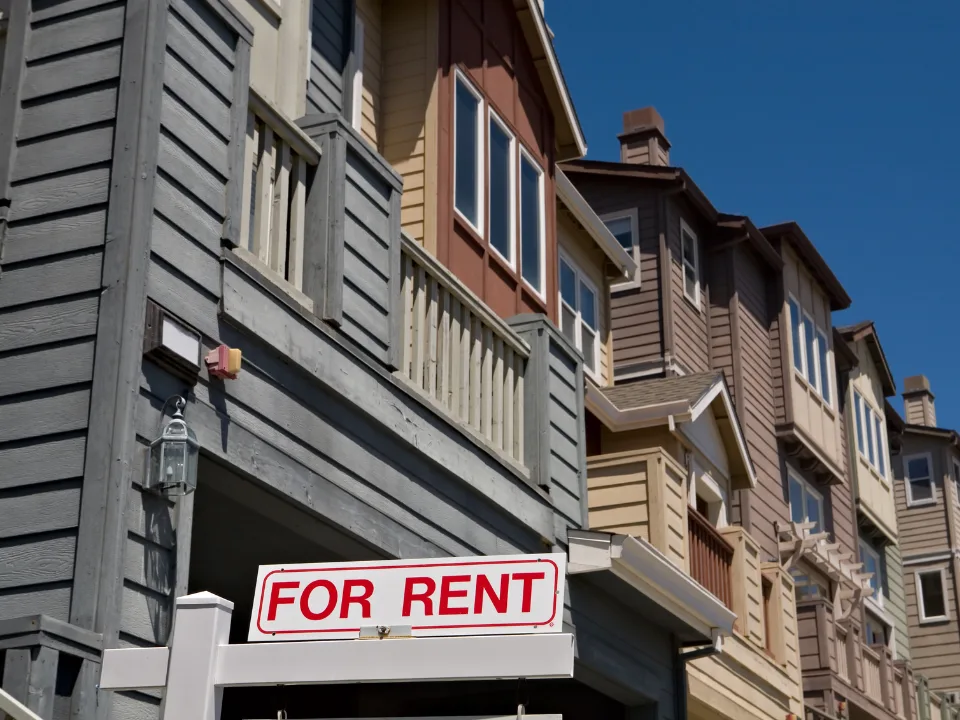Why GMO is Doubling Down on High-Rated CMBS in Market Turmoil
Jeremy Grantham and GMO, the Boston-based money manager he cofounded, are doing what they do best—capitalizing on current market dislocations by doubling down on contrarian wagers.
Together with
Good morning. Wall Street is jittery over commercial real estate, but GMO is seizing opportunities within this turbulence, focusing on the CMBS market. Meanwhile, in the Texas real estate scene, Houston stands alone among the state’s four largest metros, recording positive apartment rent growth this year.
Today’s edition is brought to you by RealtyMogul—an online platform to invest in institutional quality commercial real estate transactions.
Market Snapshot
|
|
||||
|
|
*Data as of 7/06/2023 market close.
👋 First time reading? Sign up here.
OPPORTUNITY KNOCKS
Why Contrarian Investor Jeremy Grantham is Doubling Down on CMBS in Market Turmoil

Jeremy Grantham and GMO, the Boston-based money manager he cofounded, are doing what they do best—capitalizing on current market dislocations by doubling down on contrarian wagers.
One investor’s trash…Commercial real estate has been hit by a combination of rising interest rates, which have adversely affected bondholders, and increasing office vacancies. Additionally, the withdrawal of financial support from banks could intensify the sector’s problems. However, while Wall Street is sounding the alarm on CRE, GMO is bucking the trend by acquiring high-quality mortgage bonds backed by commercial real estate, known as CMBS.
CMBS vs. Corporate-Debt Yields: The gap between yields for prime-rated CMBS and Treasurys has widened, whereas corporate-debt yields have remained largely static. Notably, CMBS prices have hit record lows compared to investment-grade corporate bonds as of March. This scenario presents an opportunity for savvy investors to “prove their mettle” in the current real estate market turmoil. Hence Grantham’s contrarian approach…

Option-adjusted spread over Treasurys. Source: GMO, JPMorgan data query, Bloomberg.
Capitalizing on dislocations: GMO’s Head of Developed Fixed Income, Joe Auth, perceives the current turmoil in real estate as a unique investment opportunity. Auth, who previously originated commercial mortgages and managed bond portfolios for Harvard University’s endowment, emphasizes that GMO is not expecting a rapid turnaround for the commercial real estate sector. Instead, they are focusing on the top of the capital stack as the ‘safest bonds’.
Rolling the dice: One such example is GMO’s investment in the Bellagio, a high-end resort and casino in Las Vegas. They own three tranches of a debt deal tied to this property. Despite potential revenue setbacks due to a possible recession, GMO is confident that the lease terms will secure its investment in the high-end hotel and gaming industry. Auth suggests that consumers, including Americans and tourists, are still spending on experiences and services, which bodes well for this sector.
➥ THE TAKEAWAY
A contrarian approach: GMO’s divergence from the crowd is showcased by their ongoing investments in the CMBS market, even as others, influenced by Wall Street, retreat in caution. Although this tactic may be perceived as risky by some, GMO’s track record of profitable contrarian moves implies a potential for remarkable returns. This narrative serves as a testament to the fact that for the bold investor, there are ample opportunities available in questioning the status quo and venturing where others dare not.
TOGETHER WITH REALTYMOGUL
Empowering Investors for Over 10 Years
RealtyMogul is a real estate investment platform where members can browse and invest in real estate opportunities ranging from multifamily, retail, office, self-storage and more in dozens of locations across the country.
The RealtyMogul Platform offers personalized service, proven business discipline and data-driven insights. Founded in 2012, RealtyMogul members have collectively invested over $1 billion into more than $5.9 billion of real estate nationwide, including over 35,000 investments made since inception and as of December 31, 2022*
Real estate companies, also known as “Sponsors” use the platform to list their real estate deals. Members can easily review, compare and invest in the deals that meet their investing criteria.
Ready to start building your real estate portfolio? Sign up today.
*This post contains sponsored advertising content. Past performance is not indicative of future results. This information should not be used as a basis for an investor’s decision to invest. Investment opportunities on the RealtyMogul Platform are speculative and involve substantial risk. Nothing on this page should be regarded as investment advice. Please carefully review all Defined Terms herein and the additional Disclosures on the ReeltyMogul website. All information and any calculations used herein is based on information from inception through December 31, 2022.
NOT ALWAYS BIGGER
Houston Apt. Rents Grow While Other Texas Metros Finally Shrink

Unsplash/Marla Prusik
Houston is the only major Texas metro out of the top four cities in the state to report positive apartment rent growth over the past year. Austin, DFW, and San Antonio can’t say the same.
By the numbers: According to the Market Line Report from MRI Software’s ApartmentData, Houston’s multifamily rental rate has seen a growth of 1.3% over the last twelve months (LTM). In contrast, Dallas-Fort Worth experienced a rental rate decline of 0.9%, San Antonio’s dipped by 1.2%, and Austin witnessed a substantial slump of almost 4%. However, Houston maintains a high average apartment occupancy rate of nearly 90%, almost on par with San Antonio and Austin. DFW takes the lead with the highest occupancy rate at 91.6%.
Houston’s apartment market is thriving: In the past year alone, it has incorporated 3,861 units and has over 22,000 units under construction, with an additional 31,719 units proposed in 187 communities. The report also highlights the recent inauguration of 73 new communities. The southern suburban markets of Houston, led by Friendswood/Pearland East, are Texas’s top growth hotspots, reflecting significant rental rate growth and absorption.
➥ THE TAKEAWAY
Part of a pattern: Despite the broader context of falling rental rates in major Texan cities, Houston stands out for its growth, both in terms of rental rates and the burgeoning apartment market. Houston’s average apartment occupancy rate of 89.9% aligns with San Antonio and Austin, indicating a strong and stable housing market. However, the report’s key revelation is the city’s potential as a hotspot for real estate investment, particularly its southern suburban markets.
DECLINING DEALS
Sharp Quarterly Decline in Hotel Transaction Volume Signals Concerns

The NYU Hotel Investment Conference revealed a stark divide among attendees, with operators and brands expressing optimism while developers, brokers, and finance professionals lamented the lack of activity.
In the red corner: The pessimists have the numbers to back up their anxiety. The total transaction volume for the second quarter was around $3.5 billion, marking a steep 70% fall from the same quarter in 2022. The decline was even more pronounced at 49% when compared to the second quarter of 2019.
In the green corner: Despite the decline, there were notable hotel transactions in the past 90 days. India-based Reliance Industries bought a 75% stake in the Mandarin Oriental Hotel New York for $215 million, valuing the total asset at around $278 million. The sellers were The Related Companies and Investment Corporation of Dubai. Additionally, the 192-room St. Regis Chicago was sold by Magellan Development Group to Gencom and GD Holdings, Denver, for $94 million, days after its official opening.
➥ THE TAKEAWAY
Into the 12th round: Looking towards the second half of the year, the likelihood of a boost in transaction volume seems low unless the Federal Reserve decides to cut the Fed fund rate. If this does not happen, the cost of hotel transaction debt will continue to rise, making deals harder to pencil. Owners without a need to sell are likely to hold onto their properties, while those with maturing debt may resort to costly short-term borrowing, hoping for a drop in interest rates in the future. This scenario underlines the uncertainties hotel investors face amidst fluctuating market conditions.
✍️ Daily Picks
-
Office market freeze: Distressed office properties and loans are in a state of limbo, with declining occupancy and cash flow, as buyers and lenders stay reluctant to meet in the middle.
-
Funding flows freely: Thayer Street Partners has closed its Thayer Street Opportunity Fund II, LP with over $275M in capital.
-
The Waiting Game: Delays in obtaining materials continue to plague the life sciences sector, according to recent Cushman & Wakefield data. The supply chain snarl isn’t over yet.
-
Market absorption shifts: Apartment absorption shifted across the U.S., with overall demand slowing down in 2H22 but picking back up in early 2023
-
A piece of American history: Over 65 bidders are registered for the auction of the 17-acre former Oakland Raiders HQ and training facility after the team left for Las Vegas.
-
Colombia’s proptech niche: Colombia has emerged as a leading proptech hub in Latin America, with 200 startups and $1B in capital, attracting investment from U.S. venture capitalists.
-
Winds of Fortune: CBRE brokers $23.1M sale of Orlando’s Windermere Storage, featuring 609 climate-controlled units and 351 parking spaces.
-
Loan defaults & lost tenants: State Street Corporation (STT) is officially delinquent on $81M in loans for an Irvine office complex.
📈 Chart of the Day
Between 2011 and 2021, the availability of low-rent units, those with contract rents below $600, experienced a significant decrease across the US. This decline was widespread, affecting 45 states and the District of Columbia, with each losing at least 20% of such units. In fact, 23 states lost at least 30% of these units, with eight states—Arizona, Nevada, Texas, Colorado, Idaho, Oregon, Florida, and New Hampshire—experiencing a loss of at least 40%.
States in the South, traditionally more affordable and currently seeing increasing rental demand, were heavily impacted. Texas led this trend, losing half of its low-rent stock, which equates to 512,000 units.
What did you think of today’s newsletter? |
HIT THE INBOX OF 65K+ CRE PROFESSIONALS
Advertise with CRE Daily to get your brand in front of the Who’s Who of commercial real estate. Subscribers are high-income decision makers, investors, and C-suite executives always looking for their next investment, product, or tool.





















